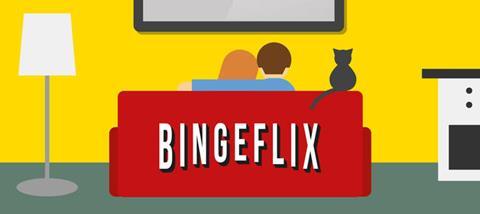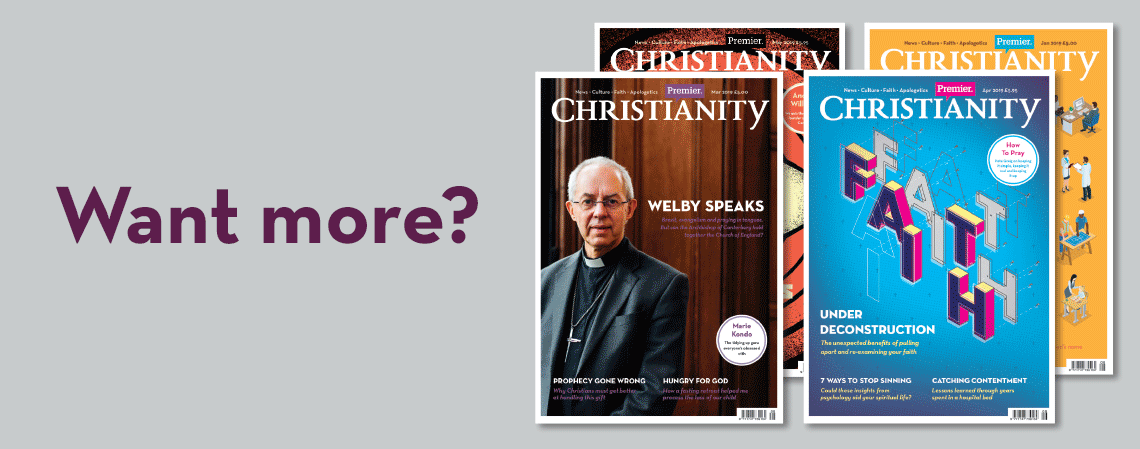
Just over a decade ago, a good friend of mine was at a dinner party with a top BBC executive. The man was high up in the then-still-unfashionable ‘digital’ department, charged with the responsibility of reimagining television in the Internet age.
He explained that his team was working on a new system that would allow viewers to watch programmes ‘on demand’, whenever they wanted. Presumably pulling the same expression as my nine-year-old does when I try to tell him about the cassette version of the Walkman, my friend simply could not comprehend the idea.
‘But what channel will it all be on?’ he asked, bewildered.
‘There won’t be any channels.’
Conversation moved on. This man was clearly insane.
That strange new system was, of course, BBC iPlayer, launched at the end of 2007, and now so widely used that it streamed programmes 3.5 billion times last year alone. Available on computers, smart TVs, tablets, iPhones and a hundred other devices not even conceived when that apocryphal dinner party took place, iPlayer has become a key element in the nation’s viewing habits.
Alongside paid services such as Netflix and Amazon Instant Video, and commercially supported versions such as ITV Player, it is not only changing the way we consume media, but is also affecting our attitudes to TV consumption. Our TV values are shifting, and quickly. Are those changes positive, or could they be subtly harmful?
INSTANT PHENOMENON
TV streaming service Netflix can almost be classified as an overnight phenomenon. From zero to 10 million users in a decade: that’s some growth curve.
Netflix takes the iPlayer idea a little further. As well as allowing you to catch up on shows you’ve missed in recent days, you can also choose to watch shows that might not have even appeared on British television. Like the DVD boxsets that became so popular in the 2000s, these shows don’t ask you to wait a week – or any time at all – for the next episode. It’s a system with no drawbacks, right?
BINGE VIEWING
On-demand viewing pushes the boundaries of our self-discipline. It asks serious questions about our ability to enjoy things in moderation; to regulate what we watch. In the age of scheduled television, which was policed by a formal and then more informal ‘watershed’, most of our decisions in this area were made on our behalf. Shows were available at a certain time, once a week, to either watch or record. Programmes broadcast before the later part of the evening were unlikely to contain much sex, violence or bad language. That has all changed.
In the on-demand era, there is no regulation on what we watch, when we watch it, or how long we spend doing so. Binge viewing has shifted from being the pursuit of a few movie marathon nerds to an activity of the masses.
In this new world of instant and multiple-choice media, we also tend to consider age ratings much less seriously. Back in the days when watching a movie meant a trip to the local video shop, we would be much more aware of that incriminating ‘18’ sticker in the corner of the box. It might even deter us from picking up that particular case, either because of embarrassment or guilt that we should be focusing our eyes on ‘whatever is pure’ (Philippians 4:8) rather than on Freddy Krueger butchering college girls.
With instant video, it’s much easier to find yourself watching age-restricted material, and at any time of the day. Put these two phenomena together, and you could end up spending your Saturday watching a whole series of American Horror Story or Game of Thrones – two 18-certificate shows with heavy sex and violence content – without really stopping to consider the impact on your soul.
This all sounds a bit heavy and moralising, of course. You’ll already have a view on whether it’s ok for Christians to watch what Father Ted called ‘this sort of thing’, although there’s arguably a difference between watching one age-restricted film or episode and bingeing on one after another.
What are streaming services showing us about our self-control? The virtue of self-discipline features heavily in the New Testament; it’s one of the fruits of the Spirit in Galatians 5, a key element of Paul’s famous athletics metaphor in 1 Corinthians 9, and implicit in the idea of Christians as living sacrifices (Romans 12:1-2), ‘transformed by the renewal of your mind[s]’ (ESV).
Netflix in figures
Netflix has just under 5 million viewers in the UK
A subscription costs around £6 a month
9.5 million UK homes will have access to Netflix by 2020, making it the largest audience for such a service outside the US (predicted by online statistics service statista.com)
Binge-viewing: the statistics
80% admit to binge watching
18% of 24 to 35-year-olds do so at least once per week
14% binge watch once a day (Source: consumer entertainment index ARRIS, May 2014)
By contrast, a popular comedian recently tweeted about ‘that moment between Netflix episodes when you see your reflection on the black screen and wonder what the heck you’re doing with your life’. Is it ok that many of us are suddenly losing whole sections of our lives to streamed TV? And what are we missing out on when we do?
THE JOY OF FLIX
At which point, allow me to set aside my ‘down with this sort of thing’ placard and say that I love my Netflix account. It has enabled me to watch films and shows I have loved for years, and others I had forgotten. It has also enabled me to discover new favourites that I might otherwise never have tried. My house is no longer cluttered with DVD cases, and I no longer waste vast portions of my income on buying films and boxsets (although that presents a challenge to the industry, which I’ll come to). My children have access to a range of brilliant movies and shows – including on-demand VeggieTales – and all this for a comparatively minuscule monthly payment that must have Rupert Murdoch shuddering on his yacht.
The really positive change ondemand has made is slaying the ugly habit of aimless channel-hopping when ‘nothing’s on’. If we can exercise self-control, it actually allows us to waste less time in front of the television. Instead, we spend dedicated time watching only the things we really care about. Broadchurch apart, the country very rarely sits down together to watch one show anymore. Instead, we’re generally becoming more adept at discovering and focusing on our favourite shows rather than drifting around the schedules, which is terrible news for Homes Under the Hammer.
TV streaming services are already turning over a fortune in revenues worldwide, and they’re re-employing some of that money in a way that few saw coming. Netflix and Amazon Instant Video have turned from being content platforms into content creators, acting like TV networks in commissioning new and original programming. In some cases they have resurrected previously cancelled shows that didn’t ‘fit’ the traditional schedules. New series of Arrested Development, The Killing and Ripper Street have appeared, instantly casting the providers as the good guys in the eyes of fans across the globe.
MUSIC, BOOKS AND MORE
Of course, TV services are just the tip of the streaming iceberg. Ondemand music, book and now audiobook providers are also taking an increasingly strong grip on their respective markets, causing some to question whether our homes will include shelves for such things in the near future. Old media is taking a beating from the new in these areas, and they’re doing so on two fronts: ease of access and price.
The latter is most compelling of all. A £10 per month premium subscription to music service Spotify effectively gives you instant access to the majority of the world’s recorded music, while £8 at Kindle Unlimited gets you 600,000 books and audiobooks.
Like the frugal fashionista in Primark wondering how that dress is quite so affordable, we know that the massive reduction in what we’re expected to pay for such things has to be hurting somebody. Some recording artists have refused to put their new albums on Spotify because the amount they earn there is minuscule compared with download or physical sales.
Meanwhile, many businesses that relied on selling physical media – including the once-megalithic HMV – have either downsized or disappeared completely. Record companies are shifting their investment to live performances because of the bites that piracy and streaming services are taking out of the business. And it isn’t just corporations that are losing out; individual performers are finding it harder and harder to make a living in the new music economy.
This is another way in which the speed of change has caught us off guard. Sometimes culture shifts so quickly and so radically that we don’t have time to think about the implications. As people who want the world to be a better, fairer place, Christians don’t need to fear Netflix, Spotify and the like. We might, however, need to think about their ethical implications before we embrace them fully. Before I do though, I think I’ll just watch another episode of...
GOD ON DEMAND
Five streamed TV recommendations...
The Bible
Roma Downey and Mark Burnett’s epic attempt to tell the whole narrative of scripture in ten hours mostly works and often dazzles.
Rev.
Tom Hollander’s portrayal of an east London vicar who learns through his frequent comical mistakes has been an unlikely hit for BBC2.
Call the Midwife
Arguably TV’s most overtly Christian cast of characters populate this heartwarming story of nuns and midwives in the impoverished East End of the 1950s.
VeggieTales: in the house
Gone are the memory Bible verses and the crowbarred Sunday school morals, but the Netflix-owned remake of this vegetable-based animation still retains a strong Christian influence.
The Gospel of John
One of four film productions from the Lumo Project, it takes the unedited gospel of John as its script.





























